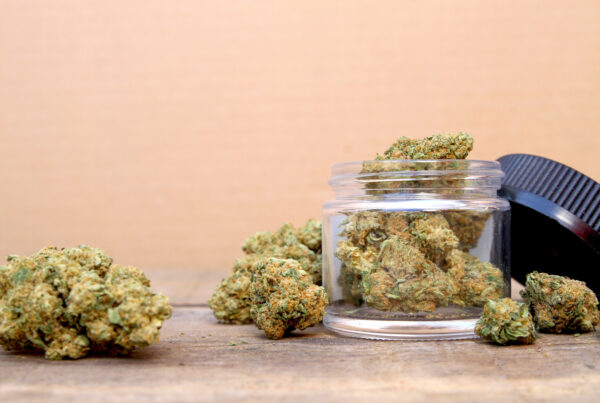Whether you’ve been prescribed trazodone primarily for a mood disorder or as part of addiction treatment, it is important to understand what trazodone is, what it does, and familiarize yourself with any adverse effects.
What is Trazodone? What is it Used For?
Trazodone is primarily prescribed to those diagnosed with major depressive disorder. It is a serotonin antagonist and reuptake inhibitor (SARI). This type of medication works by blocking the reabsorption of serotonin to alleviate symptoms of depression.
Trazodone is not FDA-approved to treat anxiety or other mental health conditions[1], but it is sometimes prescribed off label to alleviate symptoms of anxiety disorders, OCD, PTSD, and insomnia.
Is Trazodone a Controlled Substance in the United States?
Trazodone is not considered a controlled substance in the United States. While it is considered to have a lower risk for abuse and dependence than other drugs, trazodone still carries potential for abuse when taken in higher doses or not as prescribed.
What are the Recommended Doses of Trazodone?
Trazodone dosages vary depending on individual factors such as severity of symptoms, age, and weight. Typical starting dosages for depression may be between 150-300 mg daily, divided into multiple doses. For insomnia, the typical starting dose is 25-50 mg per day, taken at bedtime.
How Addictive is Trazodone?
Trazodone is not considered to be a highly addictive medication, although it can lead to both physical and psychological dependence. However, trazodone is sometimes used as part of medication assisted treatment (MAT) for those in recovery.
If you have concerns about taking trazodone or have a history of drug misuse or abuse, speak with your doctor before taking the medication.
What are the Potential Side Effects of Using Trazodone?

Like all substances, Trazodone comes with potential side effects.
Common side effects may include:
- Drowsiness
- Dizziness
- Blurred vision
- Headaches
- Dry mouth
- Constipation
- Nausea
More serious side effects may include:
- Low blood pressure
- Irregular heartbeat
- Seizures
- Suicidal thoughts or ideations
If you or a loved one is taking trazodone and experiencing serious side effects of taking this medication, seek emergency medical attention.
Can You Overdose on Trazodone?
It is possible to overdose on trazodone. Signs of trazodone overdose include increased drowsiness, dizziness, confusion or disorientation, difficulty breathing, seizures, and loss of consciousness.
Does Stopping Trazodone Cause Withdrawal Symptoms?
Trazodone may cause withdrawal symptoms when the dosage decreases or the medication is stopped abruptly. Withdrawal symptoms include anxiety, irritability, agitation, insomnia, and, in some individuals, flu-like symptoms such as nausea and vomiting.
It is important that you do not stop taking trazodone without supervision of your provider.
What is the Role of Trazodone in Addiction Treatment?
Trazodone may be helpful in treating addiction in those with substance use disorders as well as co-occurring mood disorders such as major depressive disorder. Because these mood disorders often lead individuals to abuse substances in the first place, a medication like trazodone can help regulate moods and emotions and help prevent relapse.
Trazodone may also be useful for treating insomnia, which is common in those in recovery.
It is best to use trazodone in conjunction with other treatments, such as behavioral therapies, and support groups rather than depending on medication alone.
Although trazodone is not a controlled substance, it still has abuse potential. It is important for those in treatment to communicate with their providers if the use of the medication is becoming problematic.





